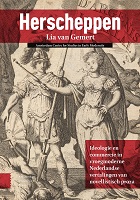Herscheppen
Ideologie en commercie in vroegmoderne Nederlandse vertalingen van novellistisch proza
Abstract
Imitating models was the main early modern poetical principle. This study discusses Dutch novelistic prose translated from three European bestsellers: François de Bellesforest’s Histoires Tragiques (translation 1612), John Barclay’s Argenis (translations 1640-1681), and Antoine Torche’s Le Chien de Boulogne (translation 1681). Confirming Burke’s thesis of cultural hybridity the translations reflect balancing acts between accepting and resisting the contents and morals of their models. Only Torche’s Chien is transformed into a cultural translation, by adding a new Dutch narrative to its first chapters. Save this added Dutch narrative, all three bestsellers are translated docilely and accurately. This seems to indicate that novelistic prose served to make a profit, financing other commodities of the publishers. Nevertheless, at the same time translators Reinier Telle, Gerbrandt Bredero, Jan Glazemaker, and maybe Timotheus ten Hoorn, like canaries in coal mines, may have given their readers alarming signals on social behavior.
Keywords
early modern novel; translations; cultural hybridity; publishers; Dutch RepublicDOI
10.5117/9789048558490ISBN
9789048558490, 9789048558506Publisher
Amsterdam University PressPublisher website
https://www.aup.nl/Publication date and place
Amsterdam, 2022Series
Lectures on Early Modernity,Classification
Literary studies: general
History and Archaeology
c 1500 onwards to present day
Netherlands
Dutch
17th century, c 1600 to c 1699


 Download
Download